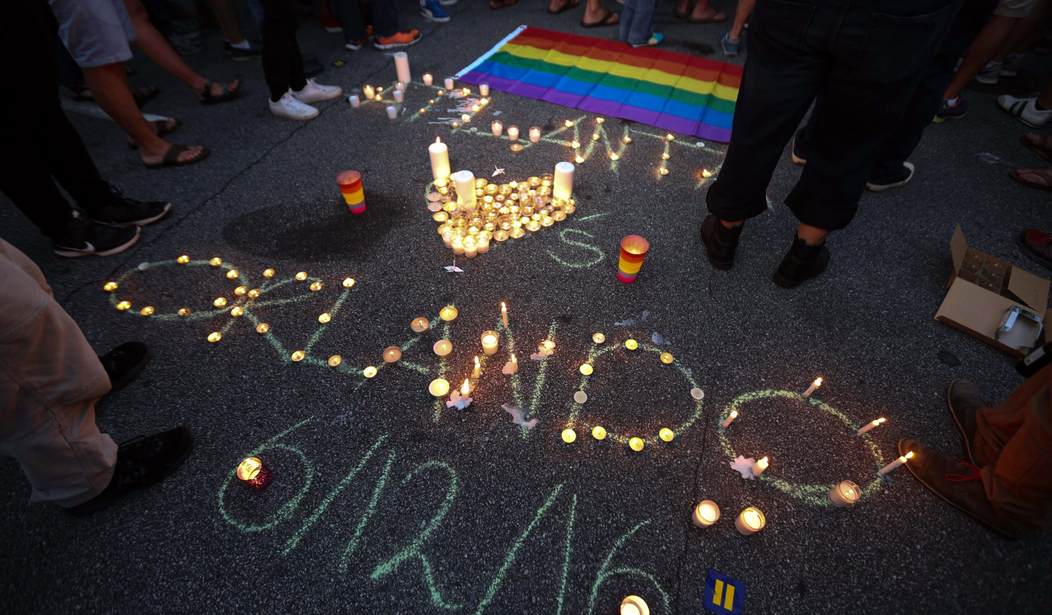We of course don’t know where the next terrorist attack will occur, but some people do: the ones who will carry it off. And have no illusions, the next one is coming. Those who would criticize the FBI for not taking action against the Orlando shooter after interviewing him three times must awaken to the fact that there are hundreds, perhaps thousands, of people across the country whose “red flags” are every bit as alarming as Omar Mateen’s were. They have surveyed potential targets and are eager to surpass the carnage seen in Orlando.
Only a tiny fraction of them can be under surveillance at any given time. And for that matter, if Omar Mateen had been under constant surveillance for weeks or even months prior to the shooting, the FBI still might have been unable to intervene in time. Consider: When Mateen purchased his weapons, he passed a background check and complied with all the regulations put in place to keep guns out of “the wrong hands.” So let’s say the FBI had followed him to the gun store and witnessed the transaction. Then what? He violated no laws and thus gave to reason to arrest him. And if they continued to follow him after the gun purchases, unless they witnessed some illegal act that gave them probable cause to arrest him, Mateen would have been free to go about his business right up to the moment he started shooting.
And when that moment did come, Mateen was undeterred by the uniformed police officer working security at the nightclub, with whom he exchanged gunfire before going on his rampage. Then, when confronted by additional police officers, Mateen traded shots with them as well and was still able to shoot more than a hundred people inside the nightclub. The lesson to be drawn from Orlando is not how the atrocity might have been averted, but rather how to respond when the next one is attempted. And it will be attempted.
Like the 1999 massacre at Columbine High School, the Orlando shooting will be studied by law enforcement officers in a search for a more effective response. Recall that prior to Columbine, police tactics to address an “active shooter” had not been widely considered. Officers responding to the school followed the standard protocol for barricaded suspects, which was to contain them and await the arrival of a SWAT team. Today, active-shooter protocols dictate that responding officers form teams of four or five and make entry as soon as possible, bypassing downed victims if necessary to seek out and neutralize the threat.
By all accounts that’s exactly what the police did at the Pulse nightclub. Having traded shots with police, Mateen retreated to a restroom and took hostages, thereby changing the scenario from an active shooter to a barricaded suspect. And in those hours before the final confrontation came at about five in the morning, the police faced an agonizing dilemma: Should they move in and risk a gun battle that would jeopardize more innocents, or should they wait it out in the hope of a surrender? But this second option carried its own risks. Mateen might have resumed shooting at any moment without warning, or he may have detonated the explosives he claimed to have. What’s more, during a protracted siege, people already wounded and hoping for rescue might bleed out and die.
There is no easy answer in this situation. Officers on the scene must rely on incomplete and sometimes conflicting information. In the panic and chaos that greeted the first arriving officers in Orlando, there must have been varying accounts on the number of shooters and their whereabouts within the club. Adding to the confusion, officers from all over the city and beyond rushed to the scene, few of whom had had the opportunity to work or train together before. Patrol officers are accustomed to handling things alone or in pairs; unlike their counterparts in SWAT, they are seldom called upon to act as a cohesive unit. It was my experience in the Los Angeles Police Department that when someone suggested that officers should receive more training for this type of scenario, some bean-counter could be relied on to remind the brass that training takes officers away from their normal duties, which in the end costs money that the city would rather spend elsewhere. After all, the bean-counters reason, it probably won’t happen here.
And in truth, it probably won’t. It probably won’t happen in any particular city you could name. It probably wouldn’t have happened in Orlando, either – until it did.
The next attack is coming. Will we be ready for it?










Join the conversation as a VIP Member